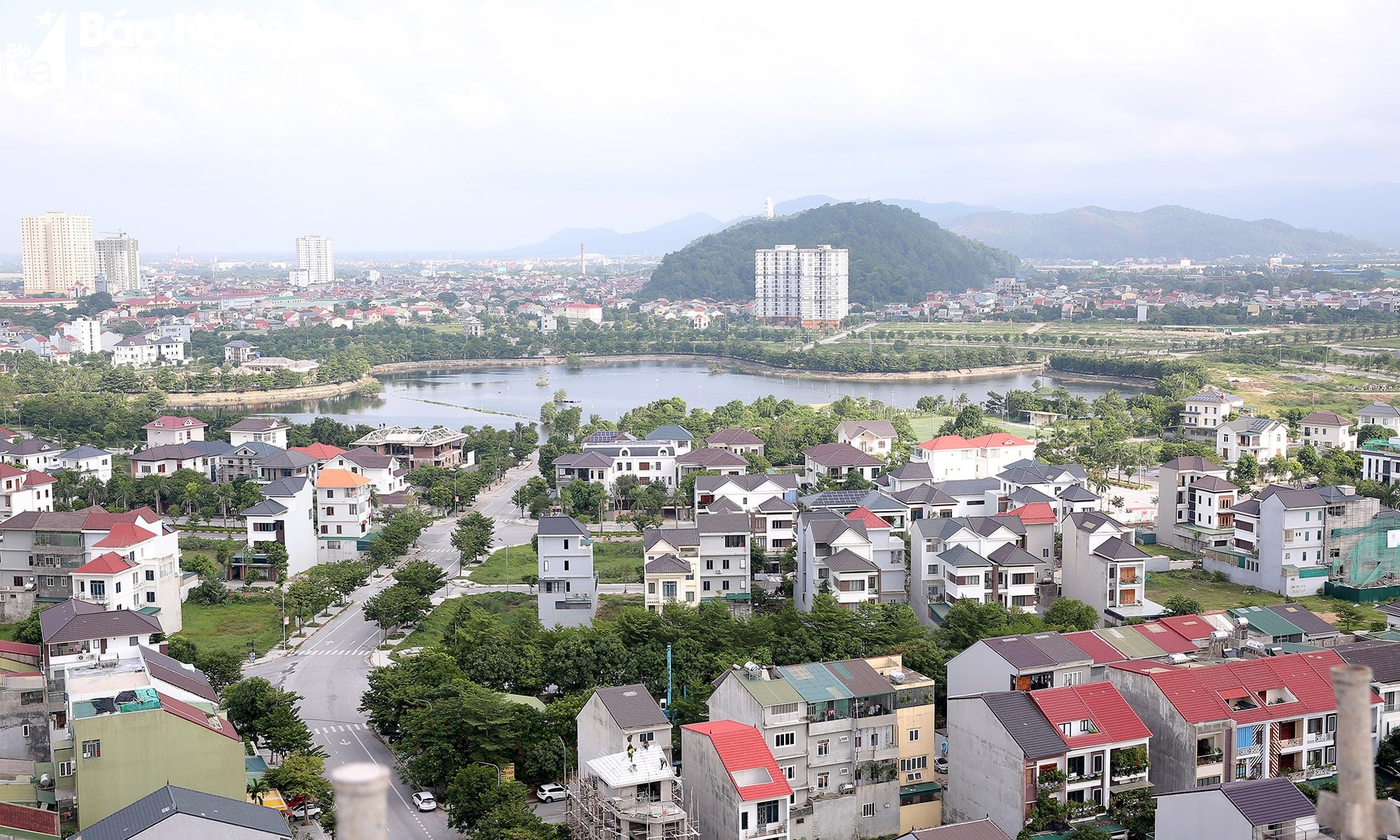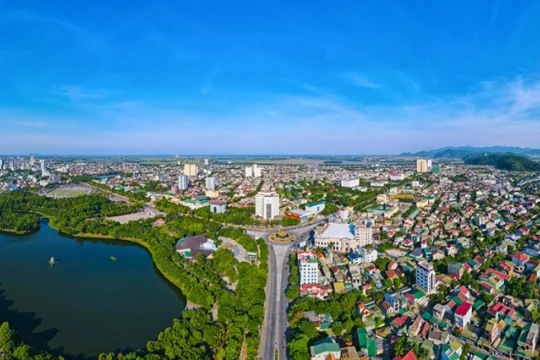To save or not to save real estate?
(Baonghean.vn) - The fact that real estate businesses "eat a lot" during the feverish period and then demand rescue when things get tough is unfair to both banks and businesses in other areas of society. When doing business, you have to accept the "profit - loss" game, you can't eat profit and cry about loss!
 |
Perspective of a real estate project being implemented in Vinh City. |
For many years now, and even up to now, the story of real estate has been a topic that is often discussed and debated. However, the approach to the problem during price fevers and when the market is frozen is different.
At present, everywhere are cries of difficulty and rescue from real estate companies, but just go back in time a year and the story is completely opposite. At that time, large and small real estate companies were rushing to announce large profits for the fourth quarter and the whole year of 2021. Headlines such as "real estate companies make record profits", "real estate companies exceed profit targets", "real estate businesses make profits despite the Covid-19 pandemic" ... flooded the press and media.
Skyrocketing land prices have helped many people get rich quickly, in less than a year they can reap profits many times the amount of money saved from their jobs or savings.
My friend - the director of a real estate brokerage company - had to tell me in frustration in early 2022: Land prices are "possessed" and increasing sharply, inexplicably and inexplicably. A piece of land without infrastructure advantages and no idea what it can produce or do business with, but there are still people asking to buy it and paying sky-high prices.
Of course, what comes must come: risky asset markets gradually slow down and go into recession. There are many explanations for the market's "turnaround", but everyone must accept the reality that no bubble stays big forever, no market can increase forever. If land prices keep increasing, who can still do business on land? If land surfing and stock trading are always easy, winning every bet, the whole society rushes to "buy and sell" land and stocks to make a profit, who will focus on production, who will work to create added value for the economy?
 |
The urban space of Vinh to the South is increasingly complete, leading to a sudden increase in real estate prices in the suburbs in recent times. Photo: Lam Tung |
In 2022, in addition to handling violations in capital mobilization by bonds at some real estate enterprises, the land market and the stock market both slowed down. Hot heads gradually calmed down to make a more comprehensive assessment of the market and identify risks from outside. Moreover, after the Covid-19 pandemic, businesses focused resources on production and business, restoring import and export activities. The era of "cheap" and "easy" money flow ended!
The difficulties from the disruption of the global supply chain due to the impact of the Russia-Ukraine war are becoming more and more evident. Interest rates are heating up day by day due to the trend of raising interest rates by central banks around the world to deal with inflation. In 2022, there will be at least 300 interest rate hikes by central banks around the world, which is nearly 3 times higher than the same period in 2021.
The State Bank of Vietnam (SBV) is of course no exception to that trend. Within one month, the SBV has increased interest rates twice (the first time on September 23, 2022 and the second time from October 25, 2022) with a total increase in operating interest rates of 2%.
With high interest rates, all businesses have difficulty accessing capital, not just the real estate sector.
At the recent conference on real estate credit held on February 8, real estate businesses said that their current difficulties are mainly due to the lack of support from banks, in which the issues of collateral, interest rates and credit "room" are the top barriers.
However, Deputy Governor Dao Minh Tu affirmed that the State Bank has not issued any document or statement requiring strict control of credit in real estate. At the same time, real estate credit growth in 2022 is higher than the credit growth of the whole economy (14.7%). For many years, the proportion of real estate loans has always been the highest in the economy, accounting for 19% to 21%. Outstanding credit balance of the real estate sector at the end of 2022 was 2.58 million billion VND, an increase of about 24% compared to 2021, the highest level in the past 5 years.
Therefore, it is not fair to say that banks do not care about supporting real estate!
Many proposals have been made by businesses, such as loosening credit "room", allowing businesses to restructure debts or request debt extension... However, there is still no clear solution other than the bank saying it will reduce loan interest rates.
Regarding this issue, some people think that the fact that real estate businesses “eat a lot” during the hot period and then demand rescue when things get tough is unfair to both banks and businesses in other areas of society. When doing business, you have to accept the “profit-loss” game, you can’t eat profit and cry about loss!
After all, the market has its ups and downs, sometimes flourishing and sometimes declining. The State has no responsibility to save or favor any specific business or sector, but needs to have clever solutions to avoid shocks, minimize damage to the economy and harmonize common interests.
 |
Bustling Vinh City attracts a wave of real estate investment. Photo: TL |
Capital mobilization does not only depend on bank credit. The problem is that a number of businesses are financially stuck due to the pressure of bond debt maturity from 2023. In 2023, the real estate sector has about VND 282,160 billion of corporate bond debt maturing and VND 362,900 billion maturing in 2024. Not to mention many investors demanding early withdrawal due to psychological factors. At this point, of course, business owners must be the first to take responsibility for the loans. However, if handled improperly, the "debt bomb" in the real estate sector will affect the entire economy.
Lowering the interest rate is necessary, because with a loan interest rate of up to 14-15%/year, it will be difficult for any business to bear, including manufacturing businesses. The use of the credit "room" tool is still maintained by the management agency, however, it is necessary to consider and calculate on the basis of timely supply of capital to the economy. Capital sources need to be directed to businesses with good projects, healthy finances, meeting the real housing needs of the people.
Enterprises themselves cannot rely solely on policies. Proposing a separate rescue mechanism will still face many obstacles and controversies. Each enterprise needs to proactively negotiate with creditors and bondholders to restructure the debt repayment schedule, consider the possibility of selling off assets and aim to lower product prices for sale...
It can be said that this is a "painful" period for the real estate industry and investors, but it is completely within the laws of the market, leaving many lessons on capital management from micro to macro, on state management. Solving the bottleneck of capital access for real estate is a short-term situational solution, but fundamentally, we must review policies to limit the "get rich quick" mindset from land. Whatever is said, the economy must be based on production and trading of goods and services, not on a "plot division" economy, purely buying and selling land for profit.








